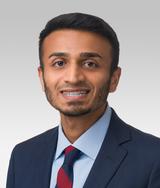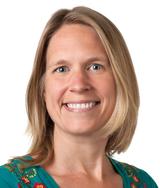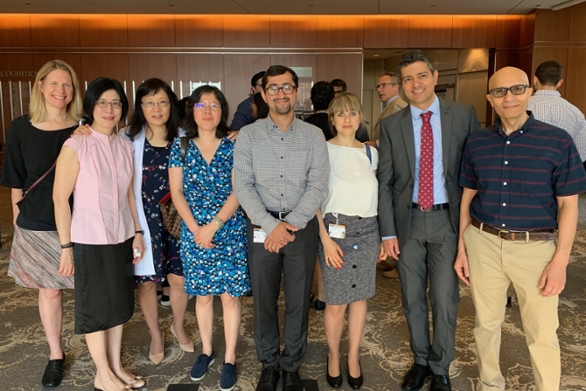Hematopathology Fellowship
The program includes both diagnostic and investigative hematopathology. It is designed to give fellows in-depth experience in the complete spectrum of diagnostic hematopathology, including bone marrow biopsies and aspirates, lymph node pathology, blood smears, laboratory hematology, body fluids, hemoglobinopathies and coagulation.
We have one open position for the 2027-2028 academic year and will be accepting applications through August 2025. At present, we are not taking part in the NRMP hematopathology match. Interested applicants can send their application materials to hemepathfellowship@northwestern.edu


Associate Program Director
Associate Professor, Pathology (Hematopathology), Medical Education
Education and Research
Fellows gain experience in ancillary studies, including flow cytometry, immunohistochemistry, cytogenetics/FISH and molecular diagnostics, including next-generation sequencing. Fellows also learn how to integrate these data into the final report.
There are two core rotations in the fellowship. The hematology/bone marrow rotation includes interpretation of blood smears, hemoglobin electrophoresis and bone marrow aspirates and biopsies. The other core rotation includes lymph node, solid tissue and body fluid workup and interpretation.

During these rotations, fellows gain expertise in the processing, triaging, analysis and interpretation of samples from the time they are received in the laboratory to the final written report. Interpretation includes morphology, flow cytometry, immunohistochemistry, cytochemistry, cytogenetics/FISH and molecular data.
In addition to the core rotations, fellows have separate rotations to gain in-depth experience in pediatric hematopathology, dermatopathology, flow cytometry, coagulation, cytogenetics and molecular diagnostics.
The fellows are also required to participate in translational research projects in collaboration with the hematopathology faculty and are encouraged to present their data at national conferences and publish in peer-reviewed journals.
Clinical Experience
The hematopathology fellows play a central role in the clinical and educational activities of hematopathology. They work closely with the clinicians, acting as a consultant to house staff and attending physicians and as mentors/teachers/consultants to pathology residents.
The fellows coordinate, attend and participate in several clinical and didactic conferences. These include two weekly clinical case conferences, monthly journal clubs, didactic lectures and microscope sessions, the Cytogenetics/Molecular Pathology conference and a weekly conference for residents and staff in clinical pathology.
Requirements
The candidate must be board eligible or certified in either clinical pathology or clinical and anatomic pathology; combined training is preferred.
Stipends
The stipend is commensurate with the PGY year of training and previous training and experience.
Application Process
Prepare an application package with the following items:
- CV
- Personal statement
- Three letters of recommendation
- USMLE scores 1, 2 and 3
Submit application package and letters of recommendation via email to hemepathfellowship@northwestern.edu.
Why Northwestern?
Housestaff training through McGaw Medical Center of Northwestern University provides diverse and challenging clinical experiences and world-class education located in the heart of the beautiful city of Chicago.
Watch Our Videos
McGaw Experience Discover Feinberg Northwestern Medicine Community Partnership Program Learn More About Chicago Get to Know Streeterville